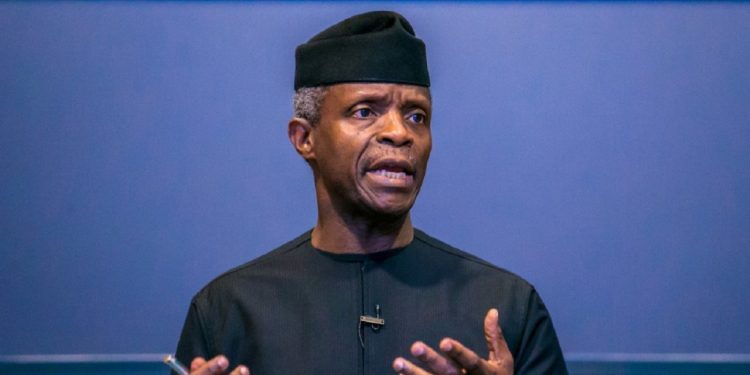Nigeria’s Vice President, Yemi Osinbajo, has stated that in delivering on the net-zero emission plan by 2060, Nigeria would need to expend $410 billion, about $10 billion additional expenditure per year.
The Vice President said this during the global virtual launch of the country’s energy transition road map.
The energy transition plan is a dual-purpose road map Nigeria aims to use in tackling energy poverty and climate change.
Currently, the country is working on securing an initial $10 billion support fund ahead of COP 27 climate talks to be held later this year. Already, Nigeria has secured over a $1.5 billion pledge from the World Bank and is in discussions with the US Export-Import Bank for an additional $1.5 billion funding.
What Yemi Osinbajo is Saying
The Vice President drew attention to the meager $3 billion per year average investments in renewable energy recorded for the whole of Africa between 2000 and 2020, stating that it will certainly not be sufficient in meeting the climate pledges by African countries.
- Professor Yemi Osinbajo also said, “It is time for decisive action, and we cannot afford to delay. African nations are rising to the challenge. All African countries have signed the Paris Agreement, and some countries, South Africa, Sudan, Angola, and Nigeria have also announced net-zero targets.”
- “For Africa, the problem of energy poverty is as important as our climate ambitions. Energy use is crucial for almost every conceivable aspect of development. Wealth, health, nutrition, water, infrastructure, education, and life expectancy are significantly related to the consumption of energy per capital.”
- “The current lack of power hurts livelihoods and destroys the dreams of hundreds of millions of young people. And although Africa’s current unmet energy needs are huge, future demand will be even greater due to expanding populations, urbanization, and movement into the middle class.”
- “Climate change threatens crop productivity in regions that are already food insecure. And since agriculture provides the largest number of jobs, reduced crop productivity will worsen unemployment.”
- “It is clear that the continent must address its energy constraints and would require external support and policy flexibility to deliver this. Unfortunately, in the wider responses to the climate crisis, we are not seeing careful consideration and acknowledgment of Africa’s aspirations.”
The inter-ministerial Energy Transition Implementation Working Group has developed an Energy Transition Plan to engage with the rest of the world in a serious, meticulous, and data-backed manner.
Ultimately, Nigeria’s energy transition plan will help bring modern energy services to the people and is designed to lift 100 million people out of poverty in a decade and drive economic growth.











Comments 1